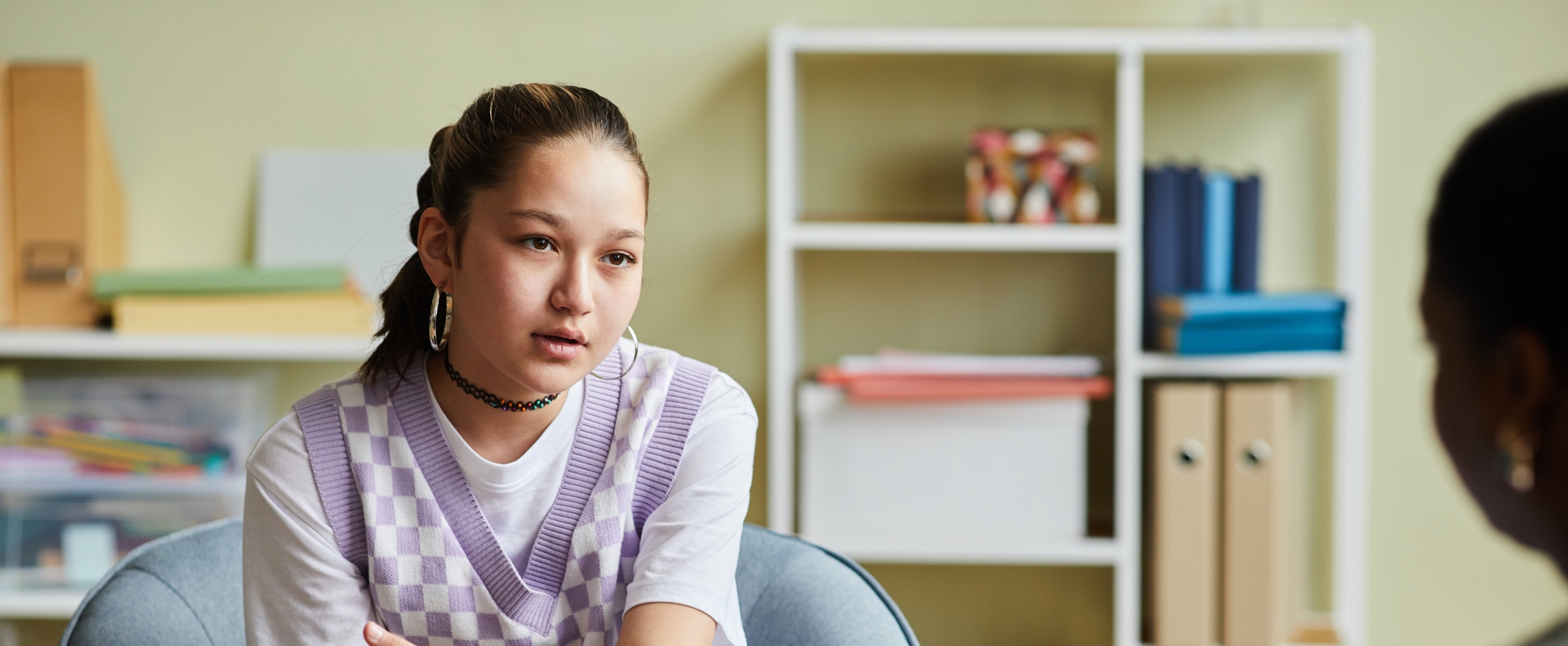Our Approach
Casa Pacifica Centers for Children and Families uses a relationship-based approach to supporting and serving young people and families. We meet people where they are and through the development of connected relationships, guide them in building on strengths and meeting their needs.
Our programs use a range of research and evidence supported strategies according to the program focus and specific needs of the child, youth, or family.
Life Space Crisis Intervention
Life Space Crisis Intervention is a child and youth care method for using incidents of problem behavior as a context for building insight and new skills. The goal of the intervention is to increase self-awareness and self-regulation. The strategies are designed to be individualized and can be applied to common problem behaviors including: displaced emotions, misperceptions, lagging social skills, bullying, impulsivity, and destructive peer relationships. Casa Pacifica is an international training site for Life Space Crisis Intervention.
Therapeutic Crisis Intervention
Therapeutic Crisis Intervention is a crisis prevention and intervention model widely used in residential care, schools, and behavioral health settings because it emphasizes safety, dignity, and skill-building rather than punishment. It is designed to help mental health workers prevent crises and de-escalate potentially dangerous situations in a way that reduces risk and promotes learning and growth.
The Therapeutic Use of Daily Life Events
If we want to be as effective as we can be in assisting a young person to move on to a place of less pain and trouble – or simply move toward the next step in their development – then we need to consider how to make the most of every minute, we have with her or him. Every day, seemingly simple, moments occur in the lives of young people that provide powerful and relevant opportunities for promoting growth and development. Whether it’s a simple exchange in the routine of everyday life, a life altering moment in working with a family, a brief encounter on the street, or a planned event with a child in a residential program or foster home, we can increase the quality of our interactions with those we care about. This curriculum is based on Dr. Thom Garfat’s award- winning research into developing effective interventions with young people and their families.
Trauma-Focused Cognitive Behavioral Therapy
Trauma-Focused Cognitive Behavioral Therapy is an evidence-based, short-term psychotherapy designed for individuals who have experienced trauma. It integrates cognitive-behavioral principles with trauma-sensitive interventions to reduce symptoms of PTSD, depression, anxiety, and behavioral issues.
Dialectical Behavior Therapy
Dialectical Behavior Therapy is an evidence-based, cognitive-behavioral treatment designed to help individuals regulate emotions, tolerate distress, and enhance interpersonal functioning. It is widely applied to conditions involving emotional dysregulation, including mood disorders, trauma-related disorders, and self-harming behaviors.
Motivational Interviewing
Motivational Interviewing (MI) is a collaborative and person-centered approach designed to help individuals resolve ambivalence about change and strengthen their motivation to move forward. It emphasizes empathy and autonomy rather than confrontation or persuasion.
Aggression Replacement Training
An evidenced-based psycho-educational group tool that focuses on three areas relevant to life skills for adolescents: skills streaming (social skills), anger management, and moral reasoning.
Drug and Alcohol Recovery – The Matrix Model
Casa Pacifica’s substance abuse recovery program began in the residential treatment program in January 2008. Implemented also in community-based services, it is a 20-week program designed to meet the treatment needs of youth who are struggling to recover from alcohol and/or drug abuse. The Matrix Model was developed at UCLA for young adults and includes:
- 8 sessions of Early Recovery groups
- 32 sessions of Relapse Prevention groups
- Regular attendance at off-campus 12-step meetings
- Family support and education groups
- Individual and family psychological treatment sessions
- Weekly random drug screening
- Periodic healthy reinforcement for participation and abstinence
Upon entering treatment, a youth attends bi-weekly groups based on the Matrix Model. This model primarily utilizes cognitive behavioral treatment principles. In addition to the Matrix Model, this intervention integrates Motivational Interviewing throughout treatment. Motivational Interviewing is evidence-based treatment designed to help directly address ambivalence about changing substance use behaviors. The use of Motivational Interviewing is crucial to enhancing the receptivity of youth to the material in the Matrix Model, and effectively addressing fluctuations in motivation to discontinue substance use or remain abstinent.

